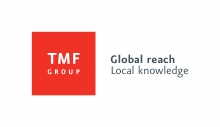The main report looks at five CEE countries. For each of these countries, separate articles are also available for download: the Czech Republic, Hungary, Poland, Romania and Slovakia.
A new report published by The Economist Intelligence Unit finds that the business environment for small and medium-sized enterprises (SMEs) is strengthening in several countries in Central and Eastern Europe (CEE), particularly in the Czech Republic, Hungary, Poland and Slovakia. However, businesses still face challenges in the administrative, regulatory and tax environments.
Business risks and opportunities in Central and Eastern Europe, commissioned by TMF Group, highlights that economic growth will be increasingly driven by SMEs in the region, which will continue to outpace the euro zone and wider EU. SMEs are benefiting from investment incentive schemes, improved funding opportunities and tax exemptions.
The report points out that the CEE region is seeing increased nearshoring (as opposed to offshoring) of manufacturing and service lines, particularly in Poland. Momentum for technology start-ups in countries such as Slovakia and Poland is rising. Moreover, the growth of shared service centres continues to offer major opportunities in countries like Hungary and Poland.
Yet, businesses operating in the region continue to face major challenges. The report highlights areas such as excessive bureaucracy and sector-specific taxation. Red tape in public-sector procurement remains an issue in several countries. Despite low corporate taxes, taxation systems remain in need of reform. The risk of arbitrary legislation, such as sector-specific taxes, is a problem.









